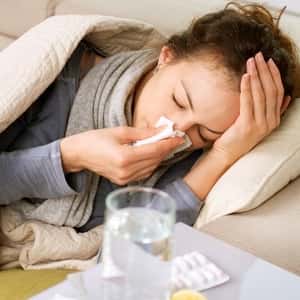
Flu season is starting slowly this year, and we don’t yet know how it will play out. What strains will be most prominent in this year’s flu? Before long, however, people will probably be suffering fevers, congestion, muscle aches and pains and coughs.
Might You Be Protected Against This Year’s Flu?
Some people may be much more vulnerable than others. A study published in the journal Science found evidence that “the first influenza attack that a child suffers can affect the way that their lifelong immunity to the virus builds up.”
The researchers discovered that people born before 1968 seem less likely to fall victim to H5N1 strains. That’s because the immune system has a long-term memory.
Did You Have the Hong Kong Flu as a Kid?
Viruses that were circulating decades ago may be similar to some emerging flu strains. The research in 1,400 people showed that children and younger people were more likely to get sick from H5N1. Presumably, older people were less likely to contract H5N1 flu because they had been exposed in childhood to similar flu strains.
On the other hand, the older individuals in the study, those born before 1968, were more likely to fall prey to a flu termed H7N9. In 1968, a genetically similar flu virus dubbed the Hong Kong Flu swept around the world. People who were infants or young children in the late 1960s and early 1970s had their first encounter with a flu virus that resembles H7N9 and therefore are significantly less susceptible to it.
What Can You Do About the Flu?
We still don’t know which strains will emerge as the dominant forms of this year’s flu season. Consequently, we can’t yet tell who might be at highest risk. The vaccines for this year contain a form of H1N1 that emerged in California in 2009, a strain that resembles Hong Kong flu (an H3N2) and an influenza B strain that emerged in Brisbane, Australia, in 2008.
Besides getting vaccinated, what can you do about the flu? Ask co-workers not to come in to the job if they have flu symptoms, and don’t show up sick yourself.
The usual advice is to wash your hands frequently and thoroughly. Pay special attention to this good advice if you have to touch gasoline pump handles, elevator buttons and other common objects that many others also handle. Hand-washing won’t protect you completely, however. Flu viruses also travel through the air on coughs and sneezes. To learn how to manage flu symptoms, you may be interested in our Guide to Colds, Coughs & the Flu.

